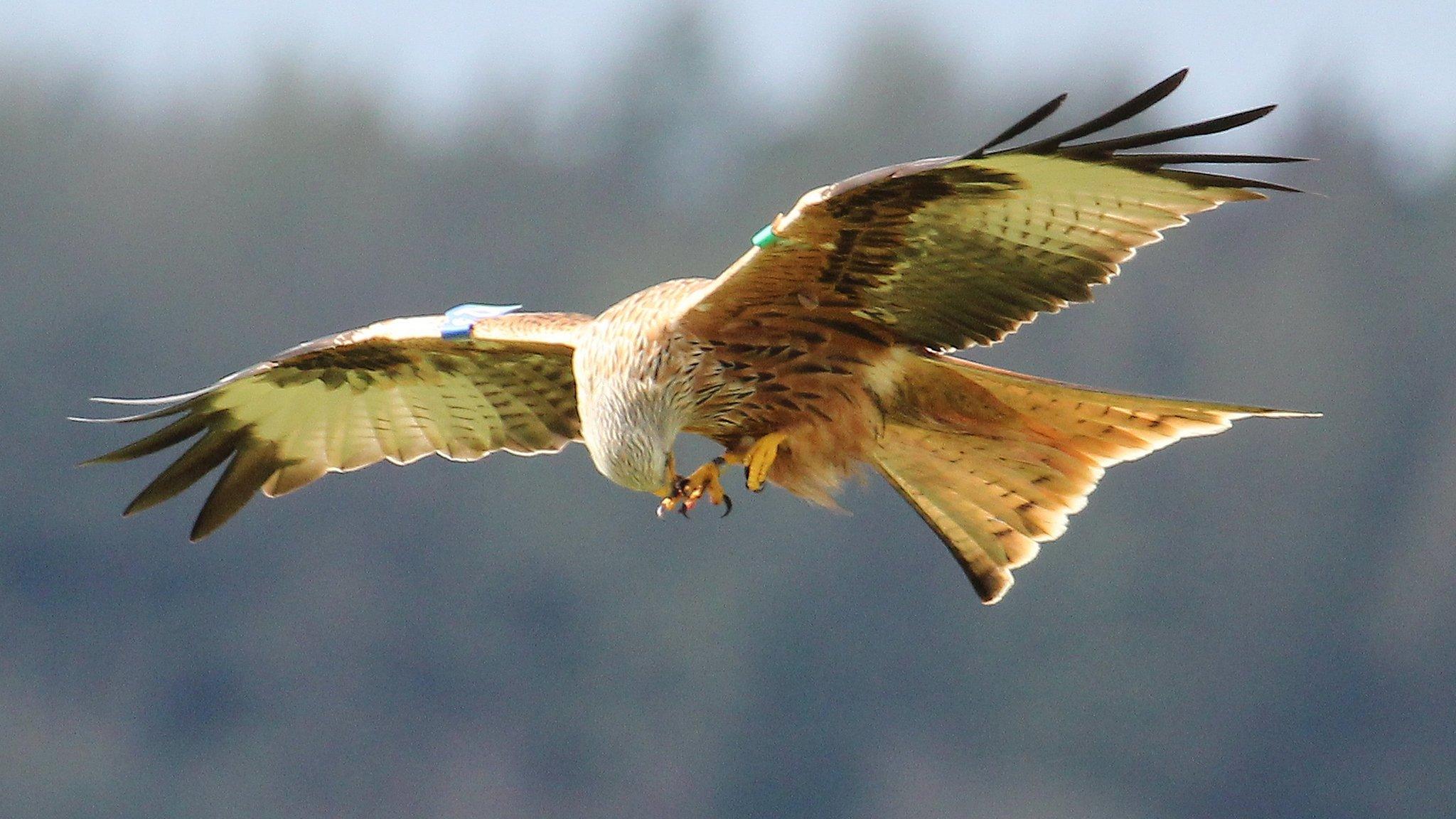Galloway red kite trail helps birds back from extinction
- Published
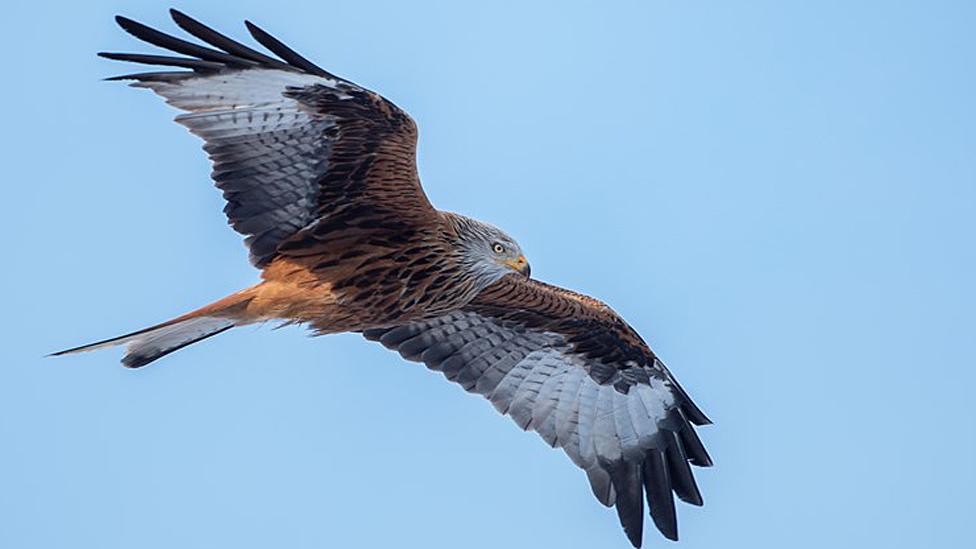
Red kites in the UK are now at the lowest level of conservation concern having once been at the highest
RSPB Scotland is ready to hand over a scheme which has helped red kites in Dumfries and Galloway to go from extinction to 130 breeding pairs.
Management of the Galloway Kite Trail - founded in 2003 - will now be taken on by local businesses.
RSPB Scotland's Calum Murray said the charity had to prioritise based on the needs of species and habitats.
However, he said it would continue to monitor numbers and support nature-based tourism through other projects.
The story of the trail dates back to 2001 when red kites were locally extinct in Dumfries and Galloway.
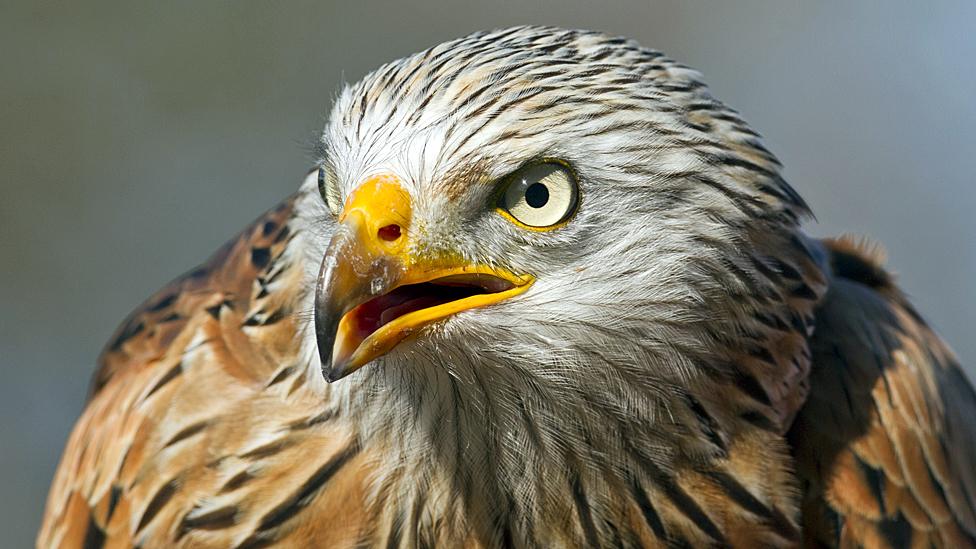
A re-introduction campaign was started which ran until 2005.
The kite trail was founded in October 2003 as a wildlife viewing initiative aimed at raising public awareness of the birds and promoting the region as a tourist destination.
One of its goals was to help the recovery after the foot-and-mouth outbreak in 2001 with studies showing it has contributed millions of pounds to the economy.
It has also seen numbers thrive with more than 1,000 chicks fledged since the project began and now 130 breeding pairs across the area.
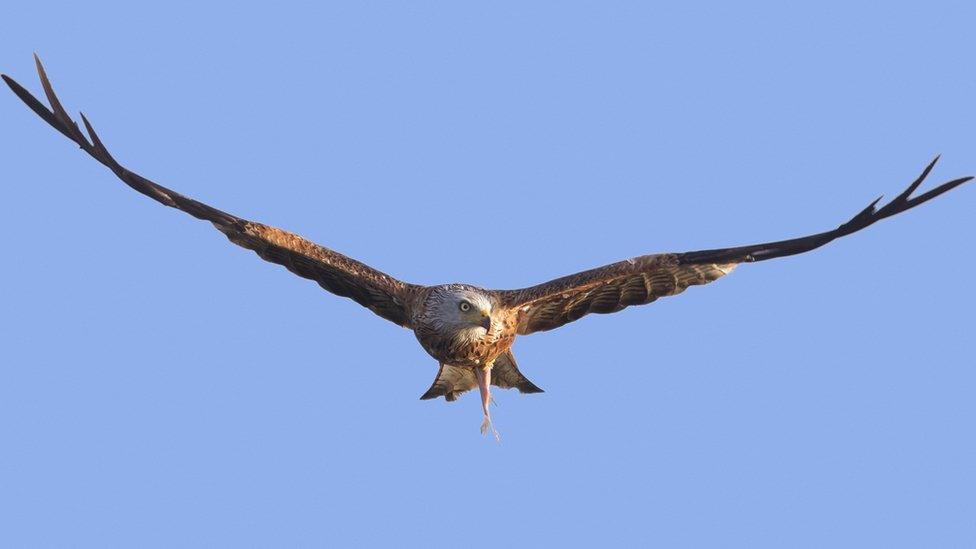
RSPB Scotland said that thanks to the initiative - and other successful re-introductions across the UK - the red kite had gone from being a red-listed bird, the highest level of conservation concern, to a green-listed bird, the lowest level.
The charity said incidents of illegal persecution against kites were still recorded, but their population was "stable and growing".
Mr Murray - a community liaison officer for more than 12 years - said that meant the time was right for the charity to step back.
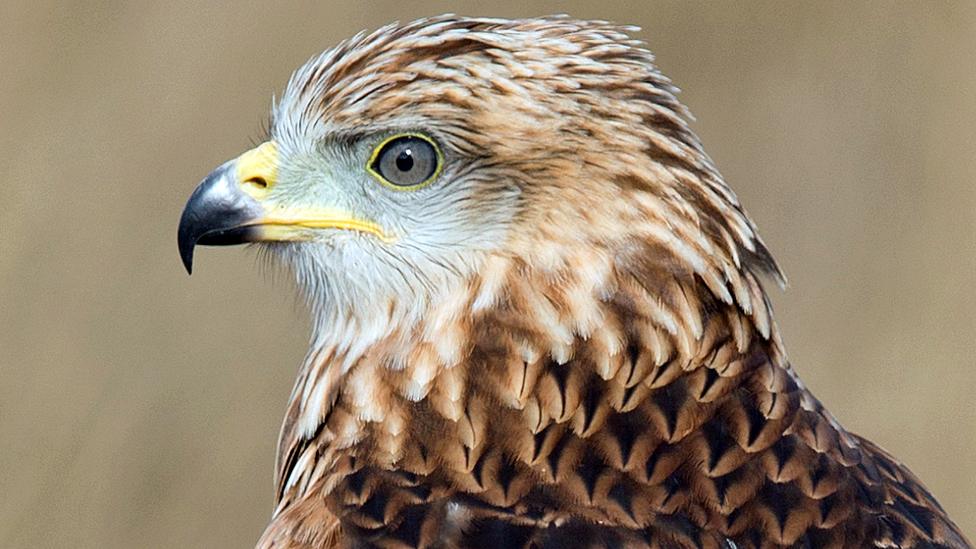
"The Galloway Kite Trail has been a huge part of my life, and it's been a privilege to be involved in something so worthwhile, with so many tangible and knock-on benefits for wildlife and for people," he said.
"It's also been a pleasure working with the businesses and landowners involved, who have all contributed to the trail's success as a visitor attraction and will, I'm sure, continue to support it.
"It's definitely sad to be stepping back, but as a conservation charity, the RSPB has to prioritise its efforts based on the needs of species and habitats."
The trail will now continue to operate through a leaflet - which can be picked up at local venues - as well as signs and interpretation at sites around the trail.
All images are copyrighted.
- Published9 January 2017
